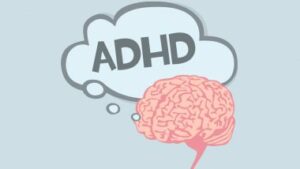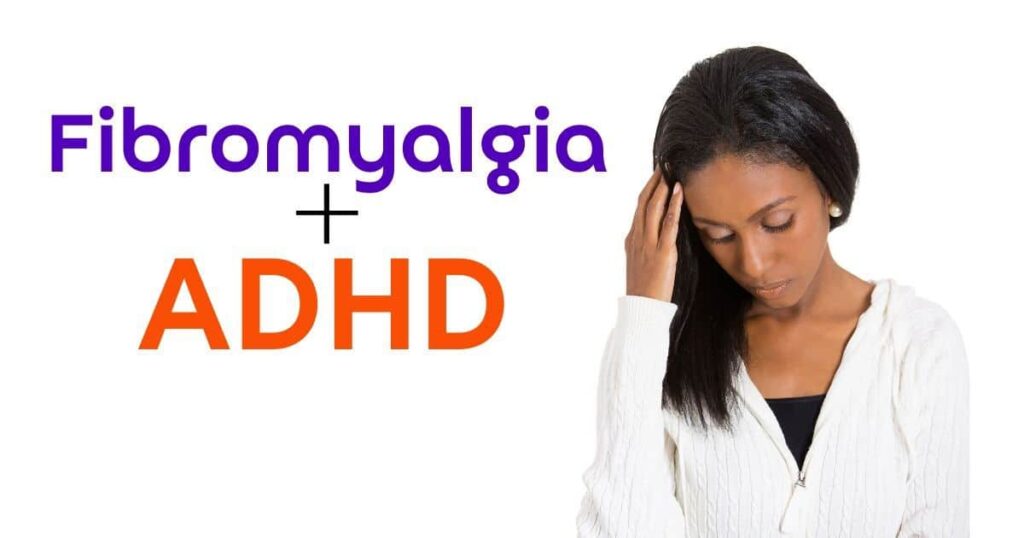Attention Deficit Hyperactivity Disorder (ADHD) and fibromyalgia are two conditions that are commonly associated with one another. However, the relationship between ADHD and fibromyalgia is not as straightforward as it may seem. In this blog article, we will explore the relationship between ADHD and fibromyalgia in-depth, and discuss the various factors that contribute to their connection. We will also offer suggestions on how you can better understand and treat ADHD and fibromyalgia together.
Contents
What is ADHD?

ADHD is a neurodevelopmental disorder that affects about 7% of people ages 3-17. The majority of people with ADHD have problems with focus, concentration, and hyperactivity. Some people with ADHD also experience problems with organizing their thoughts and managing stress. These difficulties can lead to problems in school or at home. This condition can be very frustrating for people who have it and often leads to problems with relationships.
What Is Fibromyalgia?
Fibromyalgia is a syndrome that is characterized by widespread pain, fatigue, and sleep problems. Fibromyalgia is thought to be a disorder of the nervous system, and research has shown that it is associated with abnormalities in the way the brain processes pain. People with fibromyalgia also often experience a wide range of other symptoms, including depression, anxiety, and chronic pain.
Fibromyalgia is a chronic pain disorder that is thought to be caused by long-term, low-level inflammation in the body. Researchers believe that ADHD may play a role in causing fibromyalgia, as both conditions share some common symptoms, such as fatigue and difficulty concentrating.
Fibromyalgia is the most common fibromyalgia subtype and affects around one in five people. It is characterized by widespread pain in many different areas of the body, including the muscles, bones, tendons, and joints. Fibromyalgia often causes widespread fatigue, which makes it difficult to function at work or during everyday activities.
There is currently no cure for fibromyalgia, but there are treatments that can help to manage symptoms. These treatments typically involve using medications and/or therapy to reduce the inflammation in the body, improve the quality of sleep, and reduce the pain associated with fibromyalgia.
Are There Any Links Between ADHD And Fibromyalgia?

ADHD and fibromyalgia are both conditions that can cause pain and inflammation. This connection is not surprising, considering that both conditions involve dysfunctional brain function and increased levels of stress.
The two conditions also share other common symptoms, such as problems concentrating, impulsiveness, and restlessness. In addition, people with fibromyalgia often experience muscle pain, stiffness, and fatigue.
While the exact cause of ADHD and fibromyalgia is still unclear, it likely involves a combination of genetic and environmental factors. Scientists are also investigating whether the two conditions are related in other ways as well. For now, however, there is a link between these two Conditions.
Also, the relationship between both ADHD and fibromyalgia conditions and pain may be affected by the way that people with these conditions treat their symptoms. If you have either of these conditions, it’s important to talk to your doctor about the best way to manage your pain.
Common Reasons for ADHD and Fibromyalgia
There is evidence that ADHD and fibromyalgia are related. Both disorders are associated with several common symptoms. There is also evidence that both disorders can affect the same areas of the brain.
Some of the other causes are:
Trauma is the most common cause of ADHD and fibromyalgia. Exposure to trauma in childhood can lead to several symptoms, including ADHD and fibromyalgia. These trauma symptoms can persist even if the individual does not have ADHD or fibromyalgia.
Stress
Chronic stress is another common cause of ADHD and fibromyalgia. Stress can lead to several problems, including ADHD and fibromyalgia.
Sleep problems
ADHD and fibromyalgia are often associated with problems sleeping. Sleep problems can lead to more symptoms of ADHD and fibromyalgia.
Genetic factors
There is some evidence that ADHD and fibromyalgia are related to genetic factors. However, the exact cause is still unknown.
Common Treatment Methods of ADHD and Fibromyalgia

There is a lot of overlap between ADHD and fibromyalgia (FM), both in terms of the symptoms that people with these conditions experience, and in the treatments that are often used to help manage them.
Some of the common treatment methods can be:
Medications
One of the most common treatments for both ADHD and FM is medication. Stimulants are often prescribed for ADHD, while antidepressants are commonly used to treat fibromyalgia.
Both of these groups of medications can be effective in treating the symptoms of their respective conditions, but they also come with a risk of side effects. Some common side effects of stimulants include insomnia, anxiety, and weight loss. Common side effects of antidepressants include nausea, fatigue, and dry mouth.
It’s important to talk to your doctor about all the potential risks and benefits of taking any medication before starting it.
Therapy
Another common treatment method for both conditions is therapy. Cognitive behavioral therapy (CBT) is often used to help people with ADHD learn how to manage their symptoms. CBT for fibromyalgia may focus on helping people to cope with the pain and fatigue associated with the condition. Some other therapies can be art therapy, physical therapy, and group therapy.
Like medications, there is a risk of side effects associated with therapy. The most common side effect of CBT is fatigue. Other potential side effects of CBT include headache, nausea, and dizziness.
Therapy can be an effective treatment method for many people, but it’s important to find a therapist who you feel comfortable with and who has experience treating your particular condition.
Diet and Lifestyle changes
There are also several diets and lifestyle changes that can help to manage the symptoms of both conditions. For people with ADHD, some helpful dietary changes can include avoiding processed foods, eating more protein-rich foods, and limiting caffeine intake. People with fibromyalgia may find relief by following a low-fat diet, getting regular exercise, and managing stress levels.
Exercise
Exercise is often recommended as a treatment for both ADHD and FM. Also, Exercise can help to improve mood, increase energy levels, and reduce pain. It’s important to find an exercise routine that works for you and to start slowly if you’re not used to being active.
Dietary Changes
Making dietary changes is another common treatment approach for both conditions. For people with ADHD, some helpful dietary changes can include avoiding processed foods, eating more protein-rich foods, and limiting caffeine intake. People with fibromyalgia may find relief by following a low-fat diet, getting regular exercise, and managing stress levels.
Support Groups
An important part of managing any chronic condition is having a support system. There are many online and in-person support groups available for people with ADHD and FM. These groups can provide valuable information and emotional support.
Each person experiences these conditions differently, so it’s important to work with your doctor to figure out which treatment methods are likely to be the most effective for you. It may take some trial and error to find the right combination of treatments that work for you, but don’t give up – there is hope for finding relief from both ADHD and fibromyalgia.
Conclusion
There is now overwhelming evidence that ADHD and fibromyalgia are connected. This connection has been made through research studies, patient testimonials, and commonalities in symptoms between the two disorders. While it’s still not clear what causes either ADHD or fibromyalgia, it appears that one factor might be a disrupted nervous system in people with both conditions. The good news is that there are treatments available for both disorders, and by understanding how they’re connected we can start to find ways to improve both our health and our lives.
Hope this article was of help to you! If you are suffering from mental health disorders, you may seek help from Therapy Mantra. We have a team of highly trained and experienced therapists who can provide you with the tools and skills necessary for overcoming mental health disorders. Contact us today to schedule an online therapy or download our free Android or iOS app for more information.


